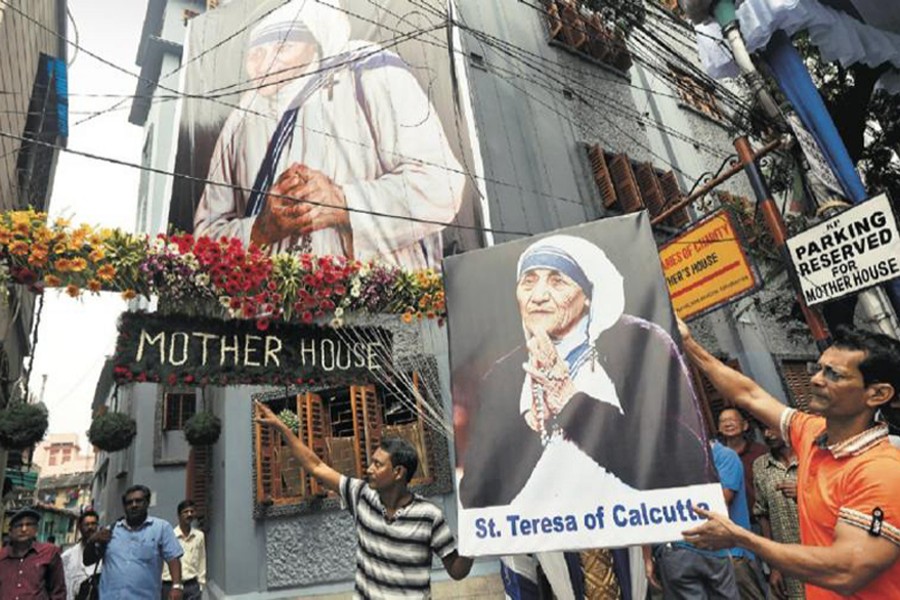The Indian government on Monday "refused" to renew a permission that is vital for Mother Teresa's Missionaries of Charity (MoC) to be able to secure foreign funds, cutting off a key source the charity has depended on to run its programmes for the impoverished.
Nobel-laureate Mother Teresa, a Roman Catholic nun who died in 1997, founded the MoC in 1950. The charity has more than 3,000 nuns worldwide who run hospices, community kitchens, schools, leper colonies and homes for abandoned children, reports Reuters.
The government of Prime Minister Narendra Modi refused permission to the charity under the Foreign Contribution Regulation Act (FCRA) on Saturday after it received some "adverse inputs", a government statement said.
"While considering the MoC's renewal application, some adverse inputs were noticed," the home ministry said, without providing details.
The ministry also rejected an earlier allegation of the West Bengal state chief minister Mamata Banerjee that the bank accounts of the charity were frozen.
Later, the MoC in a statement confirmed their FCRA application was not renewed and that it has asked its centres not to operate any foreign contributions accounts until the matter is resolved.
The move comes as hardline Hindu outfits affiliated to Modi's party have accused the MoC of leading religious conversion programmes under the guise of charity by offering poor Hindus and tribal communities food, medicine, money, free education and shelter. MoC has rejected these allegations.
Earlier, chief minister Banerjee of West Bengal, where MoC has its headquarters, wrote in a tweet that she was shocked to hear that at Christmas, the Union Ministry had frozen all the bank accounts of the MoC in India.
"Their 22,000 patients & employees have been left without food & medicines. While the law is paramount, humanitarian efforts must not be compromised," said Banerjee, an opposition leader and vocal critic of the Modi government.
The federal government said the accounts of MoC were frozen by the bank based on the request of the charity itself.
Vicar General Dominic Gomes of the Archdiocese of Calcutta said the freeze of the accounts was "a cruel Christmas gift to the poorest of the poor".
The row comes days after hardline Hindu vigilante groups disrupted Christmas church services in parts of India, including in some states ruled by Modi's party ahead of local elections in the coming months.
Attacks On Minorities
Since Modi came to power in 2014, right-wing Hindu groups have consolidated their position across states and launched attacks on minorities, claiming they are trying to prevent religious conversions.
Christians and other critics note Christians represent only 2.3 per cent of India's 1.37 billion people, while Hindus are the overwhelming majority. They repudiate the excuse given by some Hindu groups of preventing conversions as a reason for violence against Christians.
The Hindu newspaper on Monday reported disruption of Christmas celebrations at the weekend and last week, including the vandalising of a life-size statue of Jesus Christ at Ambala in Haryana, a northern state governed by Modi's nationalist Bharatiya Janata Party (BJP).
It said activists burnt a model of Santa Claus and chanted anti-Christmas slogans outside a church in Varanasi, Modi's parliamentary constituency and Hinduism's holiest city.
Elias Vaz, national vice-president of the All India Catholic Union, condemned the latest incidents.
"The strength of India is in its diversity and the people who have done this at Christmas are the real anti-nationals," Vaz said.
Contacted by telephone, the federal and state governments declined to comment on the protests.
Several Indian states have passed or are considering anti-conversion laws that challenge the constitutionally protected right to freedom of belief in the country.


